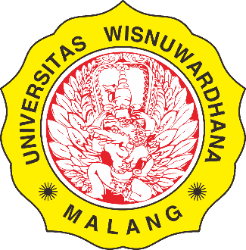Breaking the Cycle of Scavenger Descendants through Entrepreneurial Skill Enhancement and Eradicating Poverty Mentality at Supit Urang Landfill, Malang City
DOI:
https://doi.org/10.64460/js2e.v1i1.10Keywords:
entrepreneurial skills, counseling, supit urangAbstract
The large amount of waste at the Supit Urang landfill has led to an increase in the number of scavengers to 250, of which 30% are school-age children. An empowerment program targeting the descendants of scavengers is needed to prevent them from being trapped in the cycle of prolonged poverty through the Growing School program. The main focus of the Growing School program is (1) the enhancement of entrepreneurial skills and (2) the provision of guidance and counseling services. The implementation method of this program is P6, which consists of: (1) preparation, (2) material preparation, (3) socialization, (4) training, (5) closing, and (6) reporting. By providing training and essential tools, the program has significantly improved the economic and social conditions of the community, though challenges in resource supply and market stability remain. The findings emphasize the program's potential for creating lasting change and highlight the need for ongoing support to ensure sustainability.
References
Aghion, P., Algan, Y., Cahuc, P., & Shleifer, A. (2021). Entrepreneurship and social change: Lessons from developing countries. Economics of Transition and Institutional Change, 29(3), 445-463.
Ahmed-ali, T., & Cherrier, E. (2020). Society 5.0: We and I (M. Goede (ed.); Vol. 57, Issue 1). University of Governance.
Alkire, S., Foster, J., Seth, S., & Santos, M. E. (2012). Multidimensional Poverty Measurement and Analysis. Oxford University Press, 53(95), 45–52. https://doi.org/10.1017/CBO9781107415324.004.
Carter, R., & Hernandez, L. (2022). Building sustainable community programs through public-private partnerships. Journal of Urban Affairs, 44(4), 521-540.
Davis, K., & Green, L. (2021). Plastic recycling in marginalized communities: Economic and social impacts. Waste Management & Research, 39(11), 1380-1392.
Demir, K. A., Döven, G., & Sezen, B. (2019). Industry 5.0 and Human-Robot Co-working. Procedia Computer Science, 158, 688–695. https://doi.org/10.1016/j.procs.2019.09.104.
Febrianto, I., & Inayati, R. (2020). Will the Future Economics Teacher Be Prepared to Be up against Industrial Revolution 4.0? KnE Social Sciences, 2020, 1034–1046. https://doi.org/10.18502/kss.v4i6.6660
Garcia, S., & Nguyen, T. (2021). Overcoming resistance to change in community programs: A multi-case analysis. Journal of Change Management, 21(3), 269-289.
Gladden, M. E. (2019). Who will be the members of Society 5.0? Towards an anthropology of technologically posthumanized future societies. Social Sciences, 8(5). https://doi.org/10.3390/socsci8050148.
Hidayat, A., Suryono, B., & Mulyadi, M. (2021). Enhancing entrepreneurial skills in vulnerable communities: A practical approach. International Journal of Business and Management Studies, 14(2), 231-245.
Johnson, R. (2022). Empowering marginalized communities through entrepreneurship: Evidence from rural settings. Entrepreneurship Theory and Practice, 46(2), 345-360.
Kim, H., & Lee, J. (2023). Social impact of entrepreneurship in impoverished communities: Case studies from Asia. Development Policy Review, 41(2), 157-175.
Liu, X. (2020). A Critique of Precision Poverty Alleviation: Does China Approach Adequate Policy Tools? 13(1).
Maghfiroh, D., Ssusilo, H., & Ibrohim, I. (2016). Development of Project-Based Environmental Management Learning with TPA Supit Urang Learning Resources in Malang. Educational Journal - Research Theory, and Developement, 1(11), 2131–2139. https://doi.org/10.17977/jp.v1i11.7970.
Martinez, L., & Valdez, R. (2020). Practical entrepreneurship training for youth: Impacts and outcomes. Journal of Business Venturing, 35(1), 102-119.
Meier, D., & Simmons, F. (2022). Developing effective community-based entrepreneurship curricula. Journal of Education for Business, 97(1), 48-59.
Mkwanazi, S., & Mbohwa, C. (2018). Implications of the 4 th Industrial Revolution on Entrepreneurship Education.
Parker, S., & Thomas, E. (2022). Social enterprise in waste management: Lessons from the field. Journal of Social Entrepreneurship, 13(2), 178-193.
Pattinson, J., Li, Y., & Cooper, C. (2023). Sustaining community-based initiatives: The role of local champions. Nonprofit and Voluntary Sector Quarterly, 52(2), 277-295.
Pujiati, A., & Retariandalas, R. (2019). Utilization of Domestic Waste for Bar Soap and Enzyme Cleanner (Ecoenzyme). Proceeding of Community Development, 2, 777. https://doi.org/10.30874/comdev.2018.489
Sawaragi, T., Horiguchi, Y., & Hirose, T. (2020). Design of Productive Socio-Technical Systems by Human-System Co-Creation for Super-Smart Society. IFAC-PapersOnLine, 53(2), 10101–10108. https://doi.org/10.1016/j.ifacol.2020.12.2734.
Smith, J., & Hart, M. (2023). Community-based recycling initiatives: Challenges and opportunities. Journal of Environmental Management, 256, 109754.
Downloads
Published
How to Cite
Issue
Section
License
Copyright (c) 2024 Leny Suryani, Robby Wijaya, Indra Febrianto

This work is licensed under a Creative Commons Attribution 4.0 International License.
















